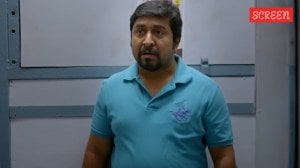Stay updated with the latest - Click here to follow us on Instagram
Viktor Orban’s ‘propaganda state’ is starting to show cracks
Orban’s strength, reinforced by a sprawling propaganda machine geared to the destruction of his opponents, has seen off would-be rivals on both the left and the right in four consecutive elections.
 Hungarian Prime Minister Viktor Orban. (Reuters photo)
Hungarian Prime Minister Viktor Orban. (Reuters photo)by Andrew Higgins
Prime Minister Viktor Orban of Hungary has long been hailed as a model by right-wing politicians in the United States and Europe, lauded for a string of election victories and his crackdowns on migrants and on activists pushing progressive social issues.
“It’s nice to have a strong man running your country,” President Donald Trump said last year of Orban, who has been in power for 15 years.
Orban’s strength, reinforced by a sprawling propaganda machine geared to the destruction of his opponents, has seen off would-be rivals on both the left and the right in four consecutive elections.
Now for the first time, however, he is struggling to land a knockout blow on his enemies.
His most potent current rival, Peter Magyar, a former loyalist who heads a surging opposition movement, has in recent months been savaged by media controlled by Orban’s Fidesz party as an abusive husband, a traitor, a crook and a sex pest.
The nonstop vilification — described by Magyar as a “tsunami of lies” — has been surprising in only one respect: It has not worked.
“Until now, these campaigns are not a success. That is clear,” said Agoston Mraz, a Fidesz supporter whose Nezöpont Institute does polling for the government. Most opinion polls, though not Nezöpont’s, give Magyar’s upstart party, Tisza, a wide lead over Fidesz before a general election in the spring.
Orban’s current troubles, which have dented his aura of invincibility, come after a decade of tightening press control and a highly effective deployment of propaganda to crush previous rivals.
In addition, Magyar has gone on offense, hammering away at corruption. He has denounced what he calls “Orban’s Versailles,” a vast walled-off estate with mansions owned by the prime minister’s family, and has detailed the property holdings and other assets of Istvan Tiborcz, Orban’s son-in-law and a mysteriously successful businessperson.
Magyar could still stumble, and Fidesz has a record of finding or inventing compromising material on its opponents — it destroyed a macho far-right challenger, Gabor Vona, with a campaign of innuendo suggesting that he was gay.
According to Laszlo Keri, who taught the prime minister at university, the growing cracks in Orban’s previously impregnable facade have shown the limits of what Keri described as “a propaganda state.”
While Hungary suffers from a falling birthrate, high inflation and a spluttering economy, the Fidesz-controlled news media laud Orban as a defender of the common man and Europe’s preeminent champion of “family friendly” policies.
“Orban and his media talk all the time about Hungary’s bright future, but people see their daily reality,” said Keri, who supports Magyar. He added, “There are two parallel worlds, and the tension between them makes people very angry.”
Even Orban’s efforts to rally support by targeting the LGBTQ+ community appear to be backfiring. In June, more than 100,000 people marched in the annual Pride parade in Budapest, far more than in previous such events, after the government banned it.
The event, Orban told supporters, was “repulsive and shameful” and showed why his political opponents, whom he accused of staging the march on orders from the European Union headquarters in Brussels, “must not be allowed near the helm of government.”
“This is a very sad story of a very talented politician who could have been an outstanding statesman not only in Hungary but in the whole of Europe,” Keri said. Orban and his party “have learned nothing over the last 15 years but how to attack and destroy their opponents,” he added.
Liberal beginnings
While Orban today relishes his image as a scourge of what he calls “woke globalists,” he started his political life as a champion of liberal values.
He attended Oxford University on a scholarship funded by George Soros, the Hungarian-born philanthropist he now casts as a satanic puppeteer behind liberal causes.
Orban’s political metamorphosis began after Fidesz flopped in a 1994 election.
“He saw that he could not become prime minister from the center,” recalled Zsuzsanna Szelenyi, a liberal who became a Fidesz member of parliament after the 1989 collapse of communism. She split with Orban, she said, after he “pulled the whole party out of its original orbit.”
Orban, she said, found inspiration in Silvio Berlusconi, the Italian media magnate and a pioneer of right-wing populism who had become prime minister of Italy just as Fidesz was struggling to stay afloat.
Orban did not undergo any ideological conversion, said Miklos Haraszti, 80, a liberal who bonded with Hungary’s future prime minister in the 1980s over their shared desire to topple communism but later broke with him.
Instead, Orban saw populist nationalism as an easier sell in a crowded political field, Harazsti said.
“Unfortunately, he changed sides” to win votes, he said.
Targeting the media
Orban became prime minister in 1998 after tilting to the right. In 2002, he lost a general election, despite his government’s relatively successful record.
That government had secured NATO membership for Hungary, made progress toward joining the European Union and eased the pain caused by harsh austerity measures imposed under its predecessors.
The defeat, recalled Istvan Elek, a senior adviser to Orban at the time, “came as a terrible shock.” Orban, he said, blamed it on hostile news coverage and concluded that “dealing with the media has to be a priority.”
After eight years in the political wilderness, Orban returned as prime minister in 2010 and, blazing a trail later followed by like-minded leaders in Brazil and India, quickly began silencing or taking over outlets his Fidesz party considered hostile.
One of the first targets was Klubradio, a small but influential radio station. Andras Arato, its founder, said he was shocked by how quickly the new government moved. Soon after the 2010 election, he said, the national lottery and other state-controlled entities stopped advertising on Klubradio.
Private companies worried about upsetting the government followed suit. Then came unexpected tax inspections and a decision by Hungary’s media council, stacked with Orban’s supporters, to cancel the station’s frequencies outside Budapest.
“We lost 90% of our income in the first six months after Orban’s return,” Arato recalled.
Extending its campaign, the new government pushed through legislation empowering a new National Media and Communications Authority to impose heavy fines for coverage it considered unbalanced or offensive.
Klubradio finally went off the air in 2021 when the media authority refused to extend its license. It now exists only online. Scores of media outlets were subject to similar actions, leaving Fidesz in control, either directly or through loyal business groups, of most Hungarian news sources.
Hungary’s media scene has become so one-sided that “everything is warped,” said Miklos Borsa, a former anchor on Hungary’s state-controlled M1 television news channel. “It is like the funny mirrors you get in an amusement park.”
Migrant crisis
Orban and his media machine went into overdrive during the migrant crisis of 2015-16, when more than 1 million refugees and migrants crossed into Europe.
He took a tough stand, building a high fence and deploying security forces to prevent migrants from entering the country illegally.
Many other members of the European Union have since adopted Hungary’s approach. But Orban shocked even supporters of tight border controls by unleashing a torrent of often-racist abuse. He falsely characterized migrants as disease-ridden threats to public health, extremists planning terrorist acts and agents of a plot to replace native Europeans with foreigners.
Krisztina Balogh, who was then a journalist with state television, recalled being asked by her editor to find a doctor “who will say on camera that migrants are bringing in diseases.”
The doctors she initially contacted said this was untrue, but she eventually found one, a Fidesz supporter, who provided what her editor wanted.
“This was just manipulation,” Balogh said. Opposition politicians, she recalled, were always presented on her state television as “weak, stupid and only interested in destroying what Fidesz had built.”
In 2018, Orban’s party won another landslide election victory.
The challenge of COVID
Unlike today, the Fidesz media apparatus during the party’s first decade in power had an easy time making its message stick, trumpeting the government’s achievements.
The economy, juiced by billions of dollars in funding from Brussels, was growing fast after recovering from the 2008 global financial crisis, which had damaged the political fortunes of Hungary’s socialists, in power when the crisis hit. International investment surged and real wages rose.
The coronavirus pandemic ended all of that, pushing government propaganda in a new direction. As Hungary’s death rate rose to the third-highest in the world, its economy stalled and the public mood soured, Orban and his media machine revved up a culture war, stoking fury over issues such as LGBTQ+ rights.
Assailing his foes as radical leftists intent on turning Hungarian boys into girls, Orban introduced a raft of laws and constitutional changes targeting sexual minorities.
With an election approaching in 2022, it looked as if Fidesz could be vulnerable, given its poor record on the economy and public health. Orban’s fractious opponents united, rallying behind Peter Marki-Zay, a conservative, churchgoing small-town mayor with seven children.
Then Russia came to the rescue. Its full-scale invasion of Ukraine in February 2022 provided Fidesz with a powerful line of attack, and the propaganda machine began denouncing Marki-Zay as a reckless enemy of peace.
“They realized that the war was their winning lottery ticket,” recalled Marki-Zay, who suddenly found himself branded a warmonger who would send Hungarians to fight Russia, something he had never suggested.
He tried telling voters that all he wanted to do was support efforts by NATO and the European Union to help Ukraine. But drowned out by distortions on television and in other news media controlled by the governing party, “I just could not get through to them,” he recalled.
Fidesz won another landslide.
New attacks loom
With an election just six months away, Fidesz has been scrambling to upgrade its lines of attack against Magyar, the conservative opposition politician.
Efforts to brand him as a closet liberal who supported LGBTQ+ rights flopped when Magyar stayed silent over the Budapest Pride parade ban. A push to knock him out of the running by prosecuting him for various purported crimes also foundered when the European Parliament, of which he is a member, refused last month to lift his immunity.
In another blow, a fierce critic of Orban’s rule, Laszlo Krasznahorkai, won the Nobel Prize in literature on Thursday. The prime minister congratulated the self-exiled writer for bringing “pride to our nation.” Krasznahorkai thanked Orban for his congratulatory message but added: “I will always oppose his political action and ideas.”
Akos Hadhazy, a former local councilor for Fidesz who is now an opposition member of parliament, said he worried most about what Orban might do if he fails to find effective new fuel for his propaganda machine to ensure that Magyar loses.
“In all hybrid regimes, there comes a time when propaganda is not enough,” he said of governments with both autocratic and democratic characteristics. When propaganda stops working, he added, “you need to take harsher measures to keep winning.”





- 01
- 02
- 03
- 04
- 05


























